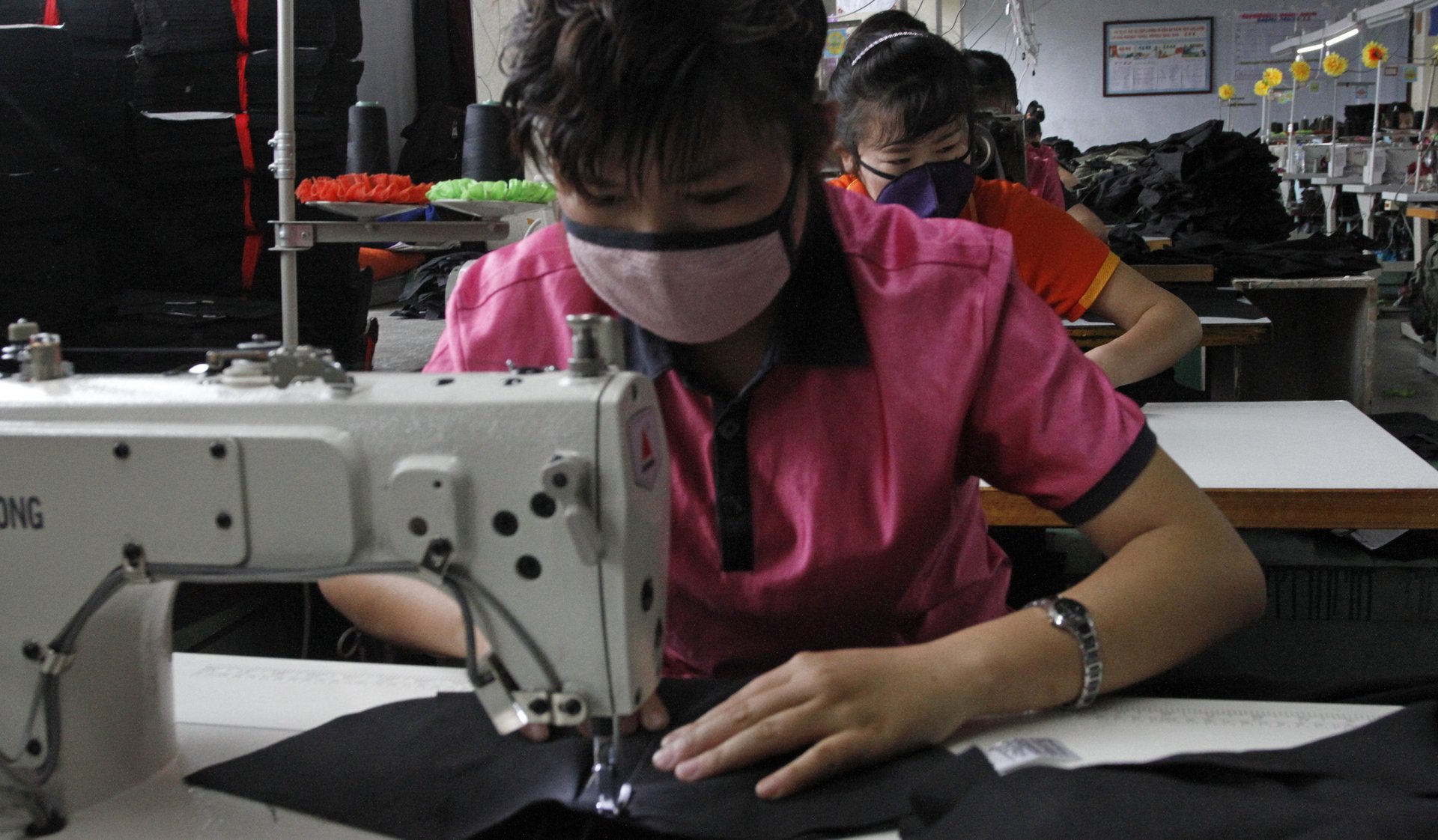Your “made in China” clothes may actually have been made in North Korea
We trust the tags on our clothes to truthfully identify where the clothing was made. But they don’t always tell the whole story.


We trust the tags on our clothes to truthfully identify where the clothing was made. But they don’t always tell the whole story.
Reuters reports that it is becoming increasingly common for Chinese textile firms to take orders from international fashion brands and then send fabrics and other raw materials to North Korean factories just across the border, where worker wages are much lower, to be sewn into the finished clothes. The clothes are sent back to Chinese ports and exported globally, bearing “Made in China” tags.
A concern for fashion brands and Western shoppers is that in addition to their reportedly harsh working conditions, North Korea’s state-owned factories help support the North Korean regime. Money from exports can even be funneled (paywall) back into the country’s weapons program.
Brands may or may not know it’s happening. “We will ask the Chinese suppliers who work with us if they plan on being open with their client—sometimes the final buyer won’t realize their clothes are being made in North Korea,” one Korean-Chinese businessman told Reuters. Like many of the news outlet’s sources, he works in the Chinese border city of Dandong, where much of the trade between the two countries passes through, and where numerous clothing agents serve as middlemen between Chinese manufacturers and international brands.
International supply chains in fashion are notoriously opaque. A brand headquartered in New York, for instance, will often use go-betweens to negotiate with factories in Asia. If the brand wants to keep an eye on the factories, it must spend time and money monitoring them, or trust the middlemen and factories when they say everything is fine. The scenario is how international brands, such as Benetton, were able to claim they didn’t know their clothes were being made at the Rana Plaza factory complex in Bangladesh, which collapsed in 2013, killing 1,134 people.
Last year, Australian surf brand Rip Curl issued a public apology after Fairfax Media discovered that a factory near Pyongyang was making Rip Curl clothing that was sold with a “Made in China” tag. The label called it a case of unauthorized subcontracting. But the practice is evidently common enough that it’s nicknamed “China plus one” in the garment industry, Michelle O’Neil, national secretary of the Textile, Clothing and Footwear Union of Australia, told the Guardian.
A separate but related issue is the number of North Korean workers entering China to work, including at clothing factories, which hire the immigrants because they can pay them much less than Chinese workers. In those cases, the “Made in China” tag is accurate, but the situation is still problematic for foreign brands. North Korea has sent tens of thousands of people abroad against their will to work and remit most of their income to the North Korean government. Estimates vary, but typically the workers keep anywhere from 10% to about one-third of their wages and turn over the rest.
In recent years, North Korea had ramped up the practice (paywall) as UN sanctions financially squeezed leader Kim Jong-un’s government. Go Myong-hyun, a researcher with the Asan Institute for Policy Studies, estimates that there are about 20,000 North Korean nationals in northeast China alone, working in labor-intensive jobs such as garment manufacturing and bringing in between $100 million to $200 million every year for the regime.
Last year, Radio Free Asia reported that firms in northeast China producing clothes for companies including Calvin Klein and Levi’s had hired a number of North Koreans. If true, it’s also entirely possible that Calvin Klein and Levi’s had no idea, and neither did the customers buying their products.
A spokesperson for Levi’s said the brand does not source from either of the factories mentioned by name in the story. Calvin Klein did not reply to a request for comment.
This story has been updated with comment from Levi’s.